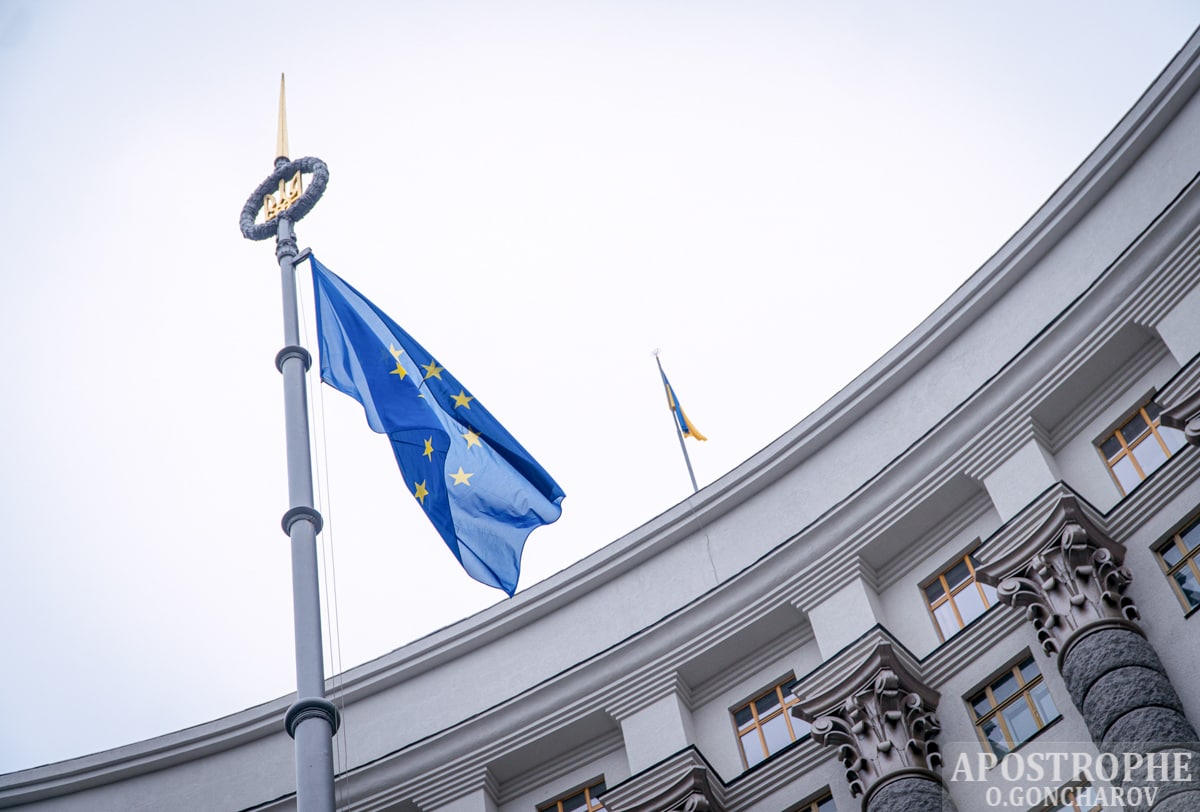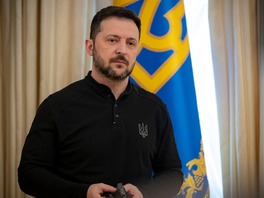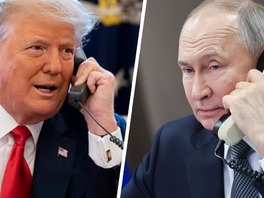In January, most of the international attention has been focused on a set of negotiations over what Russia calls ‘security guarantees’. These included talks between US and Russian officials, between NATO and Russia’s delegations, and within the OSCE format.
The lack of progress in these talks, together with a continued concentration of Russian troops on Ukraine’s border, have once again resulted in a high alert over a possible Russian invasion. Kyiv witnessed several visit of high-ranking diplomats, including the recent one by State Secretary Blinken, with the issues of de-escalation being the highest on the agenda.
Now Ukraine may experience the consequences of long-term approaches to foreign policy, which were depriving the country of the initiative and made it too often a hostage to the decisions of others. This is the moment of truth for Ukraine’s ability to offer an agenda of its own – to its partners and, probably, to its foes.
For Moscow, this is not the first time to offer a new approach to international security. The current attempt is in line with the speeches of Vladimir Putin at the Munich Conference in 2007 and Dmitry Medvedev at the Berlin Conference in 2008 – and the subsequent idea of the Treaty on European Security and the so-called ‘Corfu process’. However, this attempt looks the most well-prepared since the annexation of Crimea. The West is ready for a dialogue with Moscow.
What Russia Wants
Understanding Russia’s interests and keeping the dialogue with Moscow open is becoming increasingly important for European security. Such a conclusion may be drawn from recent statements of various European and American leaders. But as it turned out, understanding Russia’s interests is quite different from conceding to Kremlin’s demands.
The agenda offered by Russia in January is quite radical. It focused on NATO non-enlargement, the limitation of cooperation between NATO and countries like Ukraine and Georgia, and went so far as to reverse NATO enlargement since 1997.
On December 15th, Moscow has submitted to the US draft treaties on security guarantees. They suggest NATO would agree not to provide membership for former USSR countries; halt military activities of the Alliance on their territories, including flights of heavy bombers and locating military ships close to Russian territory; as well as reject military cooperation with those states on a bilateral level.
In return, Russia offers something distantly resembling détente: not to perceive each other as enemies, and not to deploy short- and midrange missiles.
Many would consider such an offer irrelevant, especially after Russia’s annexation of Crimea and aggression in the Donbas. There is something wrong with a dialogue offer about a new architecture of international security made by the key violator of the fundamental principles of international law. Moreover, Moscow continues to press Ukraine with more than 100 thousand troops on the border. All that doesn’t look like an open talk about how to enhance mutual security. Many Western leaders are not okay with the very way Russia puts forward its demands. From their perspective, Moscow should not possess a veto right on NATO enlargement.
But Russians see it in a different way. According to the Kremlin, NATO expansion violated the agreements that accompanied the end of the Cold War, leaving Russia in a vulnerable position. Russia’s arguments are quite traditional and quite from realpolitik. The key assumption is a security dilemma. From the Russian perspective, NATO in particular and, possibly, the West in general are threats to Russia’s own security. Thus, the whole security arrangement on the post-Soviet space turns into a zero-sum game: everyone who’s with the West is against Russia. Within such a paradigm, depriving Ukraine or Georgia of freedom of choice is becoming a priority goal for Russia’s survival. Any price for blocking their access to NATO seems justifiable for Moscow.
Such logic is a problematic foundation for constructing new security architecture in Europe, as it requires limitations on sovereignty for a number of states. It is even more problematic given Russia’s recent actions in the neighborhood and the level of threat it currently poses to the countries whose freedom of choice it would like to limit.
In a search of how that could be done, Moscow often refers to the experience of the Cold War, in particular to the Finnish and Austrian models. Finland and Austria, taking into account USSR’s fears and special interests, didn’t join NATO. But in both cases, non-alignment was the result of external agreements and reflected a specific balance of forces in Europe after World War II.
There are strong doubts over whether today’s balance of forces enables Russia to limit Ukraine’s sovereignty in the same fashion. From a certain perspective, everything Russia has been doing in the post-Soviet space since 2008 could be seen as an attempt to prove that it has that right. But Moscow’s demands are so large-scale and high that many do doubt that Russia is truly serious in voicing them. It is quite possible that they are just a maneuver, made to draw attention away from Russia’s more realistic goals.
What the West Insists On
At first, it may seem that the West needs a brake. The policy of minimizing risks and anti-Russian sanctions didn’t bring about success. Inside the EU and between the EU and the US there are still contradictions. There is less stability and more challenges globally. Under such circumstances, concentrating resources on most important issues and agreeing on everything else seems rational.
The readiness of Biden’s administration to hold systematic dialogue with Russia, confirmed by both in-person and online contacts of the presidents of Russia and the US in 2021, sets a new scene for communication with Moscow.
The West is ready for this dialogue. Russia still needs markets in Europe, access to technologies and money – and it needs the easing of sanctions. Moscow hardly wants and is hardly ready for a new full-scale arms race. Its cooperation with China remains difficult, and the significance of this cooperation is often exaggerated.
Signals from the West are clear and coordinated. Ukraine’s sovereignty should be preserved, and its territorial integrity restored. The West is ready for a dialogue with Russia, but not for Russia’s veto right to NATO enlargement. The US is not willing to discuss a broad agenda of European security without European allies. America’s main concern is about bilateral relations with Russia, mostly in what concerns strategic stability and cyber security. What may be called ‘Helsinki-2’, a likely major geopolitical dream of Russiam is highly unlikely.
Current moment may be favorable for Russia, but it will pass. The strength of Moscow’s negotiation position today is due to problems with the unity of the West, the Chinese factor, the ‘Afghanistan syndrome’ in the U.S., and the concentration of Russian troops on the Ukrainian border. There is a crisis at hand, and the Kremlin hopes for a tactical victory. The West is ready for a dialogue, and probably for some concessions; there is no more international isolation of Russia.
However, Russia’s long-term vulnerabilities and weaknesses remain, and keeping a large number of troops on the border is expensive. Moscow doesn’t have many options, and all of them are quite risky and/or expensive.
Although Russia may hope to challenge the unity of the West and find some separate agreements with the U.S., it is unlikely to get serious concessions. Red lines in Washington are quite fixed, and they don’t leave much space for compromises. The Biden administration may need negotiations over strategic stability, and it may try to avoid deeper Russian-Chinese cooperation or want to prevent another crisis in the Russian-Ukrainian conflict. However, it is even more important to keep the freedom of action in Europe and NATO’s credibility. Given all preliminary consultations with the allies, the US position looks stronger than that of Russia.
The latest initiative on a new round of sanctions, as well as the statements concerning possible reactions to Russia’s actions, indicate that Biden is very sober and realistic about Russia’s intentions and potential and that he believes in the power of American advantages.
At the same time, a resolute and firm stance of the Western allies against Russia’s demands may trigger problems for Ukraine, as Ukraine is still left without security guarantees but against Russia’s growing dissatisfaction.
What Ukraine Is Afraid Of
Ukraine has not improved its security much since 2014-2015, the years when the conflict in the Donbas was large-scale and lacking control. As the Russian army buildup continues on the Ukrainian borders, it is becoming questionable that international pressure can stop Moscow from using violence – if it decides so. If that happens, there will be no allies for Ukraine on the battlefield. In short, Ukraine remains extremely vulnerable. Thus, what Ukrainians are afraid of most is that a failure in talks with Russia would leave Ukraine defenseless, while Russia would still have an incentive to attack.
American officials have sent numerous signals to Kyiv about the high price Russia would pay for an assault against Ukraine. But that price is hardly high enough, as most Ukrainians are afraid. A lot has also been said that there would be no agreements about Ukraine’s destiny behind Ukraine’s back or at Ukraine’s expense – but that also sounded weak. Thus, Ukrainians are still expecting bad news: from an informal taboo on joining NATO to pressure from the West to make Ukraine fulfill the provisions of the Minsk agreements.
Talks about Ukraine without Ukraine’s participation are certainly going to happen. However, it will be difficult to impose any decisions on the Ukrainian government.
The intensification of the American-Russian dialogue is capable of ruining the whole paradigm of Ukrainian foreign policy. So far, this foreign policy has been built on an axiom that the West contains Russia through the strengthening of sanctions, and at the same time does its best to turn Ukraine into a prosperous democratic state. The reality, however, proves to be different. Most likely, Ukraine will find itself in a more difficult international environment after the current round of diplomatic activity is over. If Moscow manages to convert its military buildup into political arrangements, it will be increasingly difficult for the Ukrainian government to oppose Russian pressure. That, in turn, may result in an unpredicted and deep internal instability.
If Moscow finds a compromise with Washington, the American support for Ukraine may decrease, as well as the US resolve to contain Russia. Berlin and Paris then may also become more open to a dialogue with Russia. That may look like a return to a full-scale involvement of Russia into the great power politics – which won’t be compensated by the appropriate amount of help or security guarantees for Ukraine. That is another fear Ukrainians face nowadays.
It seems now that a crisis of Ukrainian foreign policy is inevitable. NATO membership is clearly out of touch, just as the EU. Containing Russia alone, with some diplomatic and financial assistance from the West doesn’t seem to work – and is going to work less in the future. Moreover, it is a costly strategy. For how long and at what cost should Ukraine be engaged in such a policy?
The new reality is also approaching in the Donbas, even without Russia’s invasion. The conflict management process is deadlocked; there is no mutual trust and no zone for possible agreements. If negotiations with the US fail in Moscow’s view, Russia will have new options available – for instance, by recognizing the self-proclaimed ‘republics’. Preparatory work has already been accomplished with the massive issue of passports to locals and the opening of the Russian market to the products made there. The next step may be taken already in February when the State Duma is about to vote for a call to the president on the issue.





